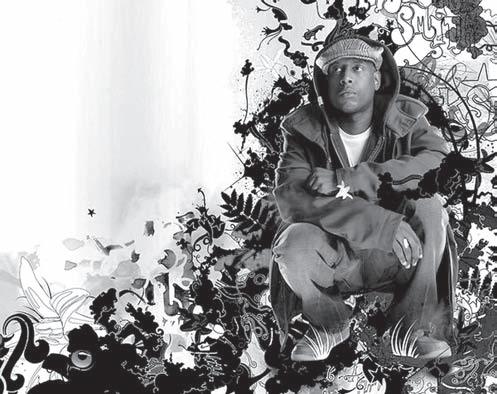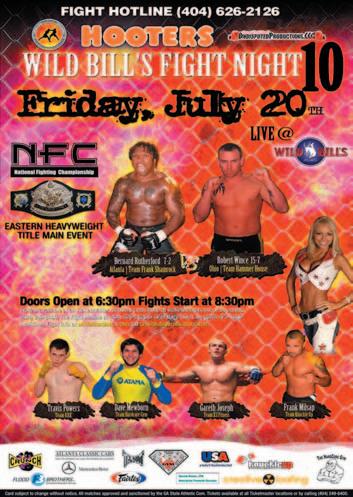
9 minute read
TALIB KWELI
MUSIC INTERVIEW R-E-S-P-E-C-T TALIB KWELI’S BEAUTIFUL STRUGGLEFORSUCCESS
IBY B. LOVE f skills sold, truth be told/I’d probably be, lyrically, Talib Kweli. –Jay-Z, “Moment of
Advertisement
Clarity” Actually, if skills sold, Talib Kweli would arguably be one of the richest MCs in the hip-hop game. The Brooklyn-born rapper (whose name translates as “seeker of truth or knowledge”) best-known for co-founding Black Star with Mos Def and recording Reflection Eternal with DJ Hi-Tek has long been a favorite among music critics, progressive hip-hop fans and even the game’s best lyricists. Yet still he struggles to move units, recording albums for five different labels over the past seven years. His latest CD, Ear Drum, finds Kweli’s Blacksmith label having signed a new distribution deal with Warner subsidiary Reprise. His always intelligent lyrics are backed by a veritable Who’s Who in hiphop production (see: Pete Rock, Hi-Tek, Madlib, Just Blaze and Kanye West). It’s all part of the latest step in Kweli’s mission to prove that a slow and steady career build ultimately wins the hip-hop race. We recently caught up with the influential MC by phone to get his take on the current state of hip-hop, the pervasiveness of negativity and whether or not music has the power to change the world.
There have been a lot of people pointing fingers at hip-hop lately, blaming rappers for everything from widespread misogny to Don Imus. Where do you stand with regards to the assertion that MCs need to be held accountable to the influence they have over their listeners? Well, once you become an adult you’re a role model to the people coming up behind you, but a large numbers of MC today come from homes in which that wasn’t stressed. They don’t know any better. You can’t hold a baby responsible for being ignorant. The job of an artist is to create art and be honest within it, not to raise babies. In a perfect world, all art would be positive and contribute to the raising of our chil dren. But we don’t live in a perfect world, so we have to accept art for what it is.
Do you believe that music, as an artform, has a power to change or influence the world, whether for better or worse? Of course it does, which is why I try to make powerful music. But I know that because of how I was raised. My parents were educators, and when I started fuckin’ up in school they sent me to a school in which I wasn’t allowed to fuck up. I was kept on the positive path even when I started straying from that path, but a lot of rappers didn’t have that advan tage. It’s very easy for someone who went to college or had people in their life to help them be ambitious to pass judgment on what comes out on the corners, but it’s really one-sided and backwards to be so hyper-concerned with the [negative] language and not deal with the issues that create the language and the situations these artists rap about. There are a lot of artists in other genres who use negative language and degrade women, but in hip-hop, the negative language and the blackness of it make it seem more dangerous.
How do you feel about the current balance between positive, progressive hip-hop and the more mainstream sound? The more mainstream hip-hop isn’t selling, and I think the discussion of it is over-hyped because the images are a lot more in-your-face. But when my record comes out I think it’s gonna do just as well, if not better, than these guys with the iced-out chains and big rings and whatnot. Just because you see these Americanized images of success in a video doesn’t mean that the rapper is that successful. I went on a radio program with a dude in Columbus who told me that half the rappers he takes out who talk about how much money they got, he has to buy
GUYS WITH THE ICED-OUT CHAINS AND BIG RINGS AND WHATNOT. them breakfast! (Laughs) You’re widely considered among the most elite lyricists in the game. Who were the MCs who originally in spired you to put pen to paper? Guys like Melle Mel, KRS-One, Rakim, Big Daddy Kane, LL Cool J and Public Enemy were the original MCs that started the tradition I’m from. But as far as my direct influ ences, it was a mix of De La Soul, QTip and latter-day Ice Cube. When you were recording the Black Star with Mos Def and Hi-Tek, did you have any idea you had a future hip-hop classic on your hands? I think we knew the influence it was gonna have, because when we recorded it we were making the kind of music we felt was missing from hip-hop. Linking up with Rawkus at such a great time just enabled us to take it to another level, because they were working with other artists like Wordsworth, Rosco and Planet Asia who were doing similar stuff to what we were doing. Though you’ve always been a favorite among critics and hardcore underground heads, you’ve never had a huge mainstream breakthrough. Is that frustrating, and if so is commercial success something you’d ever go out of your way to obtain? Um, no, it’s not frustrating at all. My props and my accolades have not come from material success, but, as you can see right now, material success in the music business is waning. An artist who sells 300,000 records now, 10 years ago they would’ve been selling 3 million. The industry [sales] standard goes up and down, but what I do is progressively going up with each new album. Who’s on top right now doesn’t really matter as long as I continue to do what I do, because I’m always gonna come out on top. How did you feel when you heard Jay-Z giving you props on “Moment of Clarity”? It was pretty cool, one of the coolest things that has happened to me in this business. I’ve been blessed, across the board, to receive a lot of love from people who have been in a position to help me. And from different sides of the game, too, from Jay-Z and 50 to Kanye West. I didn’t really even know Jay-Z when he made that comment. But my relationships with people like Kanye, Mos Def and The Roots have really taken my music to a new level, because they’ve looked out for me when they got to a level where they could help me out. You’ve worked with some of the best pro ducers in the business, from the Neptunes to Kanye West. What, in your eyes, makes these guys great collabora tors to work with? I think they’ve mastered their sound and created something classic. I think we’ve had a liberation from sampling where everyone wants to do some thing new, but those guys create their own classic sound, That’s why I have people like Pete Rock, Hi-Tek, Madlib, Just Blaze and Kanye– because that’s what I’m trying to do. People went crazy when they found out you and Mos Def were part of Dave Chappelle’s Block Party. How did that come about? Well, me and Mos Def did a tour together last year and we’ve performed together numerous times. The reason the Block Party thing came off so well is because that’s how we do often throughout the year. The Block Party thing was just sort of a tribute to that energy we have when we perform together. Has there ever been any serious discussion about the possibility of a full-on Black Star reunion? Yeah, but I think there are a lot of things that are a lot more exciting to us. It’s hard. The reason why people are still so interested in a Mos

Def and Talib Kweli album is because of how prolific we’ve each been outside of Black Star. If we weren’t as prolific, it’d just be like, “Hey, what happened to that kid you used to rap with?” (Laughs) I find that, more often than not, people say they want [a reunion], but when the artists get back together to record something that sounds like where they are NOW, fans are like, “What happened? This ain’t how it used to sound!” They aren’t satisfied.
Talk to me about Ear Drum. How would you say it’s different from your previous solo albums? Well, it’s definitely being promoted differently because it’s on my own label (which has also signed Jean Grae). But it’s really just a progression, ya know? Over the last decade, my resources, my ability and my experience have made me a better musician.
Are you confident that Reprise will be able to mar ket your material better than your previous major labels have? I feel confident in MY ability. They’re still a corpo ration, and there are still a lot of things they don’t get. But, more than any of the labels I’ve been involved with in the past, they were interested in doing this with me and they’re open to new ideas. There’s a lot that I have to learn about the corporate structure, and there’s a lot that they have to learn about work ing with an artist like me, who doesn’t necessarily fit comfortably in that corporate structure. But hopefully we can get all that to come together.
How has the hip-hop game changed most in the decade or so you’ve been in this business? What do you think of the current state of the genre? I think it’s in a beautiful state. I hear great hip-hop music all the time. I think all the discussion about what’s good and bad about hip-hop, and whether hip-hop should be responsible to the people, those things distract from the great music that comes out. If people would just focus on the music, all of those questions would be answered. The people asking most of those questions don’t now anything about hip-hop. They might hear a song or two on the radio, but they’re not participating in hip-hop culture and going to HipHopDX.com to see who’s the hot, new, young whatever. So those people have no right to talk about it.






WEDNESDAY Express “MidWeek Party Like
None Other” THURSDAY
Cosmo Weekend Warmup Lava Underground House
Thursdays “Best in Local and International House DJs”
FRIDAY
CosmoLava In Like Flynn Presents
Obsession Fridays
SATURDAY
CosmoLava Presents Two Clubs
ONE COVER






